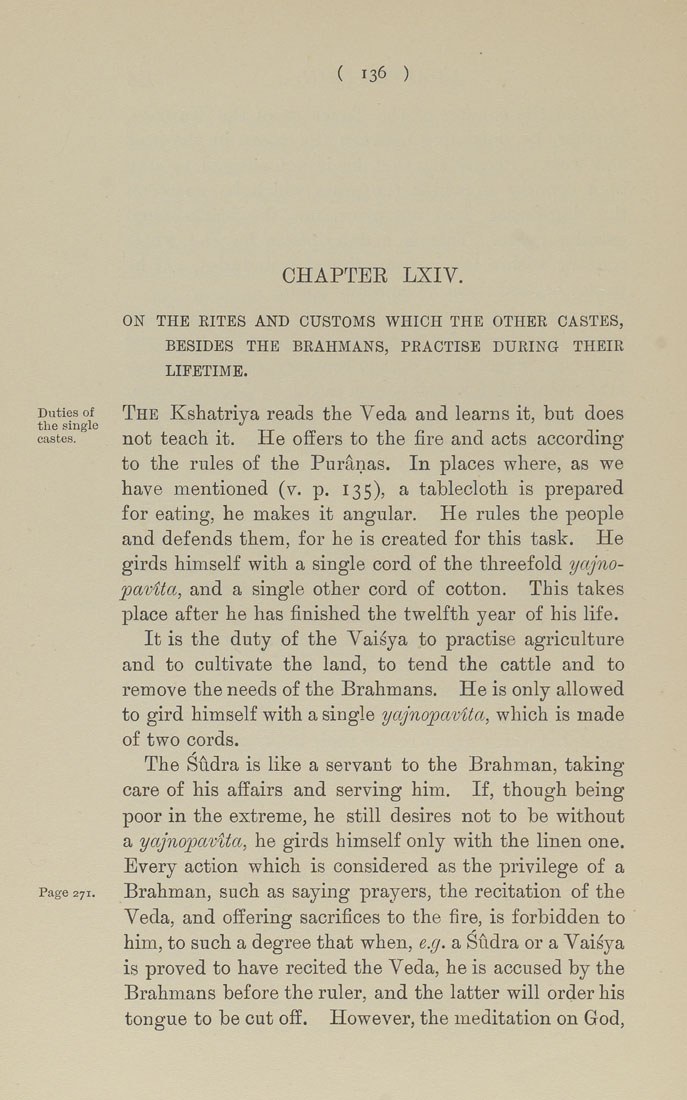( 136 )
CHAPTER LXIV.
ON THE RITES AND CUSTOMS WHICH THE OTHER CASTES,
BESIDES THE BRAHMANS, PRACTISE DURING THEIR
LIFETIME.
Duties of The Kshatriya reads the Veda and learns it, but does
the single , "^
castes, not tcach it. He offers to the fire and acts according
to the rules of the Puranas. In places where, as we
have mentioned (v. p. 135), a tablecloth is prepared
for eating, he makes it angular. He rules the people
and defends them, for he is created for this task. He
girds himself with a single cord of the threefold yajno¬
pavitct, and a single other cord of cotton. This takes
place after he has finished the twelfth year of his life.
It is the duty of the Vaisya to practise agriculture
and to cultivate the land, to tend the cattle and to
remove the needs of the Brahmans. He is only allowed
to gird himself with a single yctjnopctvitct, which is made
of two cords.
The Sudra is like a servant to the Brahman, taking
care of his affairs and serving him. If, though being
poor in the extreme, he still desires not to be without
a yctjnopctvitct, he girds himself only with the linen one.
Every action which is considered as the privilege of a
Page 271. Brahman, such as saying prayers, the recitation of the
Veda, and offering sacrifices to the fire, is forbidden to
him, to such a degree that when, e.g. a Sudra or a Vaisya
is proved to have recited the Veda, he is accused by the
Brahmans before the ruler, and the latter will order his
tongue to be cut off. However, the meditation on God,
|








